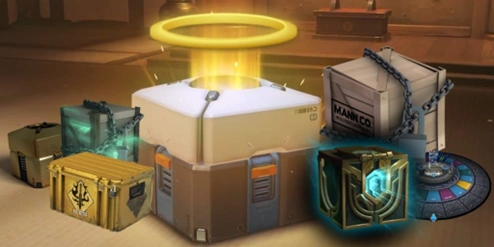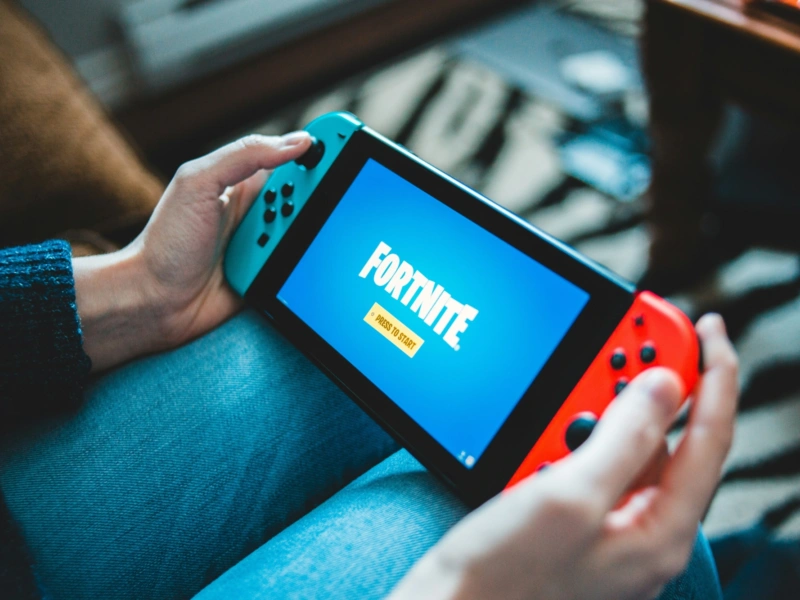Lets talk about the hidden jackal of the loot boxes
You may have heard of the terms “gacha gaming” and “loot boxes” before, but what do they really mean? The terms gacha gaming and loot boxes essentially refer to randomisation mechanics in gaming. The randomisation is applied in gaming, where a loot box or some form of mystery box gives a player a randomised item.

Gaming basics
Players usually use in-game currency to purchase a loot box. Players can earn these in-game currencies from completing various missions in the game, or an easier route - purchasing in-game currency using real money.
The items in these boxes are usually features that improve a player's in-game experiences. These can be skins or weapons, offering boosts to aesthetics or playable features of the games. These items also range in difficulty to get, as some items are more common than others, while ultra-rare items often offer desirable features. The randomisation part applies to which item a player receives in a loot box [1].

The biggest names in loot box and gacha gaming:
- Genshin Impact
- Fortnite
- Overwatch
- League of Legends
- Gacha Life
- Various FIFA games
Loot boxes and gambling parallels
Visual and audio effects
Features of loot box awards are almost always accompanied by visual and audio effects.
- Colourful fireworks, dazzling borders and lights
- Gradual sound effects building up to the prize
- Descriptive words such as “Ultra-rare”, “Legendary” or “Epic”
In a casino setting, similar visual and auditory effects accompany slot machines when played.
Fundamental elements
The three elements of gambling are [2]:
- The consideration: Something you expend to be able to play, mostly understood to be money
- The prize: Something of value, mostly understood to be a cash prize
- The chance: that winning the prize is wholly or entirely based on chance.
In loot boxes, the in-game currency is the consideration, the prize is the valuable or desirable skin/item, and the chance is the randomisation of the loot box. The randomisation (chance) of the prize is fundamentally the same as gambling. This fundamental similarity is also the combination that creates such a thrilling experience for users. Through uncertainty and chance, variable reinforcement creates a psychological effect of happiness, compelling users to engage in the thrill over and over again [3]. In conjunction with the fundamental gambling mechanics of chance, and the use of special effects, game developers create the same thrilling feelings of winning to the player.
Understanding the intrigue
Research shows social networks and social recognition affect consumption behaviour [4]. The surprise features of a game often target something colloquially known as FOMO- (Fear Of Missing Out). Online gaming can also be a social experience, where teaming up with friends to complete challenges elicits excitement. By artificially generating scarcity and excitement in certain game skins/items, game makers tap into young people's desire not to be left out.
This is especially true for children, who still are still understanding their identity. Online games offer an accessible entertaining escape into an immersive experience in a creative game world [5]. A distinct feature of many online gacha games is the free-to-play feature. Whilst the first play is free, the catch comes in later; where to have an improved gameplay experience, the option to buy in may be enticing. By being free-to-play and free-to-download, a large audience is initially attracted to the game, and are then introduced to the gacha features. It is unsurprising for game developers to introduce pay-to-play features to a mass audience, as their primary interest is to monetise their game. In particular, these free-to-play games are highly accessible to young children and adults with financial barriers.

“If its free, you're the product"
The rising trend in mobile games
The hook of chance mechanics proves highly effective based on its prevalence in gaming over time. From 2010 to 2019, desktop video games saw a 67% increase of loot boxes.
About 58% of the top performing Google store games in mobile games had loot boxes, and a similar rate of 59% appeared in the Apple game store. What gives rise to concern is the age range accessibility of mobile games. 94.9% only had a minimum age requirement of 12. Desktop games observe a slightly older age limit. Given that mobile games are more accessible to children, loot boxes generate exposure to gambling mechanics at a young age. Over half (56%) of mobile games containing loot boxes are even deemed suitable for children as young as 7 [6].
Gambling like harm suffered in gaming
Firstly, research links loot box engagement with increased risk for problem gambling. Whilst causation cannot be established, the increased risk relationship between engagement is replicated across several studies [7]. Secondly, parallel experiences of gamblers fallacy and sunken cost fallacy is experienced by young gamers.
How the gamblers fallacy may sound:
"The past ten loot boxes have been common items, I am bound to get a rare prize the next time."
How the sunken cost fallacy may sound:
"I've already spent $50 on these boxes but haven't got the rare prize yet, the money I spent will go to waste if I don't buy another."
A survey out of the United Kingdom identified problematic overconsumption behaviours on loot box spending [8]:
“I spent over £400 when I was 15 or 16 on my mum’s bank card.”
“I spent several thousand myself on loot boxes which was stupid and irritating looking back. I also had my brother steal £700 of my money for loot boxes for FIFA.”
In Australia, about one in three young people have played games containing loot boxes in the past 12 months. For young people who regularly buy loot boxes, on average $50 AUD is spent each month [9]. Whilst loot box gaming has not been researched as extensively in New Zealand, it is likely a similar prevalence exists.

Conclusion
Gambling mechanics are very widespread in online spaces. However, as youth dominate online spaces, loot boxes consumption present consistent expenditure and overspending similar to problem gambling. Given how widespread mechanics are, everyone can be more vigilant in observing physical and online spaces- especially how young people interact with them.
To protect yourself or your children:
- Check warnings of the games for in-game purchase options, often lootboxes
- Research games before you buy or download
- Don't save your debit/credit card details in game or on online storefronts such as Steam
Want to read more?
- https://www.researchgate.net/publication/357322014_Loot_Boxes_Gambling-Like_Mechanics_in_Video_Games
- https://oasis.library.unlv.edu/cgi/viewcontent.cgi?article=1146&context=grrj#:~:text=But%20what%20about%20free%20bingo,connect%20bettors%20to%20other%20bettors%3F&text=Gambling%20consists%20of%20three%20elements%3A%20consideration%2C%20prize%20and%20chance
- https://pmc.ncbi.nlm.nih.gov/articles/PMC3845016/
- https://link.springer.com/chapter/10.1007/978-3-030-22602-2_17
- https://www.sciencedirect.com/science/article/pii/S1875952122000611
- https://pmc.ncbi.nlm.nih.gov/articles/PMC8794181/#pone.0263177.ref010
- https://pmc.ncbi.nlm.nih.gov/articles/PMC9295209/ https://pmc.ncbi.nlm.nih.gov/articles/PMC9389446/
https://pmc.ncbi.nlm.nih.gov/articles/PMC6599795/
https://royalsocietypublishing.org/doi/10.1098/rsos.220111 - https://www.rsph.org.uk/static/1997fb77-2b38-4b7f-8725b21e158d009a/Gambling-short-paperv4.pdf
- https://austgaming.approveforlaunch.com.au/sites/default/files/2020-08/AGC%20LR%20-%20Loot%20Boxes_%20Are%20they%20grooming%20youth%20for%20gambling_.pdf







